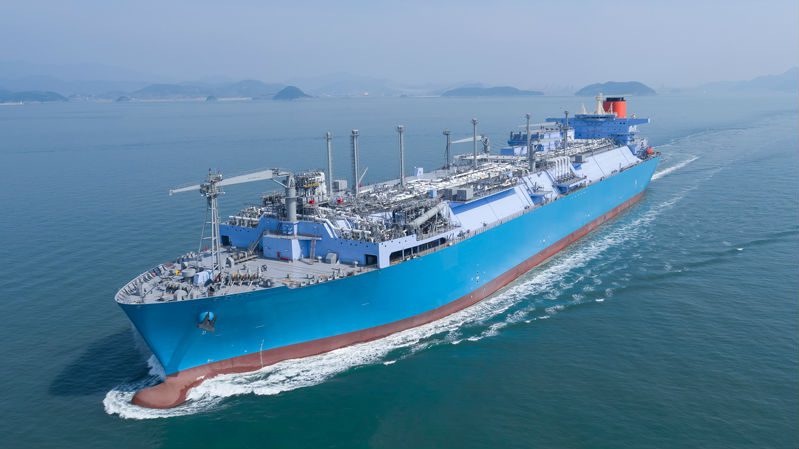. Photo credit: MOL
By Anna Shiryaevskaya (Bloomberg) — Turkey is getting a giant helper to avoid last December’s gas shortages.
The world’s biggest specialized vessel to import liquefied natural gas, a cheaper and quicker solution than a land-based facility, is on its way to help with imports of the fuel mainly used for heating and power generation. The MOL FSRU Challenger, as long as the Eiffel Tower, is expected to arrive from South Korea this month and start by year-end.
Last winter, a cold snap gripped the whole region, including Iran, where Turkey gets some of its gas from. That meant the nation couldn’t get hold of enough fuel to meet its booming gas demand and the grid asked private power plants to reduce fuel demand by as much as 90 percent.
A first floating storage and regasification unit, the Neptune, arrived in December to complement two onshore terminals at Aliaga and Marmara Ereglisi.
“We expect Turkey to import more than last winter, and last winter they increased demand,” said Gyorgy Vargha, chief executive officer of MET International AG, a Zug, Switzerland-based energy trader that trades LNG mainly in southern Europe. “It is a growing market.”Turkey was the fastest-growing market for LNG imports after China, South Korea and Japan in the first half of the year, according to Bloomberg New Energy Finance, which forecasts uneven demand in the nation through 2030.
The 345-meter (1,132 feet) tanker can store 263,000 cubic meters of LNG, enough to cover more than a day’s gas demand in Turkey. It was sailing westward, just south of India as of Tuesday.
The ship can also export the fuel for use in neighboring regions, according to Mitsui OSK Lines Ltd., the owner and operator of the vessel.
State gas grid operator Botas Boru Hatlari Ile Petrol Tasima AS signed the lease agreement for the vessel, which will be located at Dortyol near the Syrian border.
Floating LNG terminals allow countries to import gas from a variety of sources, which increases competition and can lead to lower gas prices, according to law firm Baker Botts LLP.
“This is why floating regas is so hot, because it is a very quick way to get a change in the status quo in terms of access to energy,” John White, a partner at Baker Botts, said by telephone. “Even the prospect of being able to import an alternative source of energy creates a reaction in the market and creates a more competitive market.”
© 2017 Bloomberg L.P

 Join The Club
Join The Club











